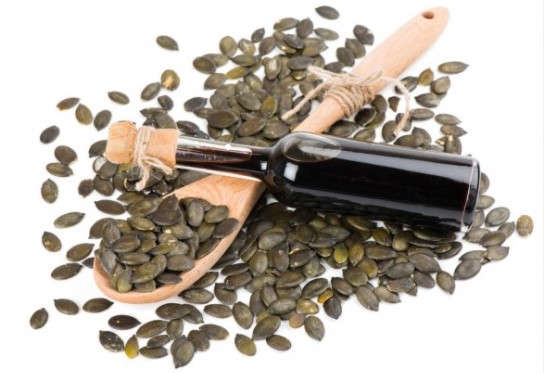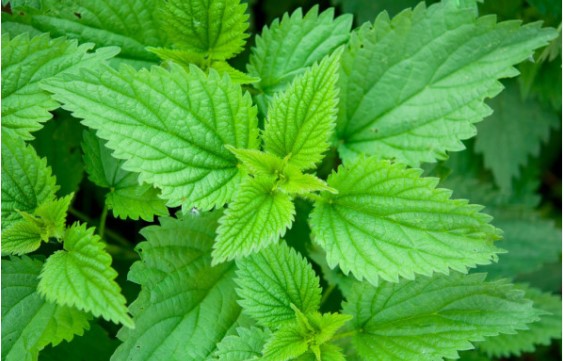Benign Prostatic Hyperplasia (BPH)
Benign prostatic hyperplasia (BPH) is a non-cancerous enlargement of the prostate gland and the most common benign tumor found in men. It is a disease where patients develop an abnormally enlarged prostate, which affects the urinary and reproductive systems. The probability of developing BPH increases with age. It doesn’t risk patients’ lives but can cause discomfort.
BPH and Urinary System
While the prostate is usually the size of a walnut or golf ball in adult men, it can grow to be as large as an orange. As the gland enlarges, it can squeeze the urethra and thicken the bladder wall. Over time, the bladder may weaken and lose the ability to empty fully. This condition makes urine remain in the bladder and causes many of the lower urinary tract symptoms of BPH.
Patients may experience symptoms like abnormal urinary frequency, urinary urgency, feeling of persistent residual urine, and loss of small amounts of urine due to a poor urinary stream (dribbling).
Natural Supplements that prevent BPH
First of all, it is crucial to distinguish BPH from prostate cancer. BPH is not fatal, but if it is cancer, it can be life-threatening when it spreads to other organs. Hence, please be sure to visit a urologist for diagnosis.
Generally, the treatment for BPH begins with drug therapy. The following three are the mainstream medicines for BPH.
- α1 blocker
It relaxes the muscle of the prostate and bladder neck, which allows urine to flow more easily. - 5-α-reductase inhibitor
These are medicines that can stop the prostate from growing further or even cause it to shrink. - PDE5 inhibitor
Phosphodiesterase inhibitors can help with mild or moderate lower urinary symptoms.
If these drugs are inefficient, patients go for surgery such as:
- Transurethral prostatectomy (TUR-P: Transurethral Resection of Prostate)
- Holmium Laser Enucleation of Prostate (HoLEP)
- Photoselective Vaporization of Prostate (PVP)
Of the above, holmium laser prostate enucleation is the most common one. However, you should always consult your doctor to decide the right and suitable surgery for you.
Nowadays, surgery for prostatic hypertrophy has made remarkable progress, and its side effects are decreasing. There is a drop in the incidence of urinary incontinence and postoperative erectile dysfunction (ED). However, ED or urinary incontinence can occur as sequelae with a small probability.
Moreover, retrograde ejaculation, a state in which sperm gets ejaculated into the bladder, may occur. It can cause infertility. Therefore, if you are planning for a baby, you can either postpone or avoid the surgery, as advised by the doctor.
Natural supplements that prevent benign prostatic hyperplasia are almost the same as prostate cancer. Please read the page “Prostate Cancer” for more information. Here, I have added three outstanding supplements that improve BPH. Also, please consult with your doctor before using any of them.
Pumpkin seed oil

Pumpkin seed oil relaxes bladder smooth muscle and increases urination. Like saw palmetto extract, pumpkin seed oil also has an inhibitory effect on 5-α-reductase and prevents BPH. Another enzyme called aromatase metabolizes testosterone to estrogen called 17-β-Estradiol (E2). It has a powerful estrogen function that thickens and enlarges prostate tissue. The pumpkin seed oil also has an aromatase inhibitory effect.
In particular, pumpkin seed oil relaxes bladder smooth muscle and increases urine output via the α1 adenosine receptor involved in the bladder micturition reflex. This process hence reduces frequent urination and increased urinary urgency.
A one-year study in over 1,400 Korean men with BPH found that pumpkin seed oil can be an effective alternative medicine with no adverse reactions. Participants in the study had improvement in symptoms, including better urinary flow.
https://www.ncbi.nlm.nih.gov/pmc/articles/PMC2809240/
There are many studies in Europe, especially Italy and Germany.
The role of Cucurbita pepo in the management of patients affected by lower urinary tract symptoms due to benign prostatic hyperplasia: A narrative review
https://www.ncbi.nlm.nih.gov/pubmed/27377091
Also in Africa. The below is from Nigeria.
Inhibition of the experimental induction of benign prostatic hyperplasia: a possible role for fluted pumpkin (Telfairia occidentalis Hook f.) seeds.
https://www.ncbi.nlm.nih.gov/pubmed/21709398
Nettle (Urtica dioica)

The roots of this plant are a popular medicine in preventing prostate problems (the leaves are for allergic reactions). In males, testosterone decreases, and estrogen increases with age. It happens so due to the effect of an enzyme called aromatase. Estrogens thicken the prostate tissue and enlarge it. Lignans available in the nettle prevent the binding of androgens to SHBG (sex hormone-binding globulin) in BPH.
The histological and histometrical effects of Urtica dioica extract on rat’s prostate hyperplasia
https://www.ncbi.nlm.nih.gov/pmc/articles/PMC4405682/
Moreover, nettle has a similar effect as saw palmetto and prevents the conversion of testosterone into dihydrotestosterone.
Ameliorative effects of stinging nettle (Urtica dioica) on testosterone-induced prostatic hyperplasia in rats.
https://www.ncbi.nlm.nih.gov/pubmed/21806658
Melatonin

Melatonin is a hormone secreted from the pineal gland, located deep in the brain in an area called the epithalamus. Recent studies show that all the organs in the human body produce melatonin. Significantly in the intestines, melatonin is produced 500 times more than the pineal gland.
Melatonin is a rejuvenating hormone. It is common for jet lag countermeasures or a sleeping pill. But recently, it has also attracted attention as an antioxidant and anti-inflammatory supplement. Furthermore, melatonin is also related to bladder and prostate function.
Melatonin reduces nocturia by increasing bladder capacity in a dose-dependent manner and reduces nighttime urine production. It peaks at the age of 6-7 years and decreases by 2% every year with age. Therefore, in the mid-thirties, its production volume is almost half.
There are several types of melatonin — 1 tablet can contain 0.75mg, 1mg, 2.5mg, 3mg, 5mg, 10mg, or 20mg. There are also available in liquid form and in combination with other supplements. I usually prescribe 1 mg of melatonin per tablet, and it can be easily increased or decreased depending upon the symptoms. The amount you can sleep without worrying about urination until morning varies from person to person. So does the dose.
How to take: First, take 1 mg before going to bed. If you feel that is not enough, increase one tablet at a time. As the prostate enlargement shrinks itself, melatonin is no longer necessary. However, as a rejuvenating hormone, you may take 0.5 to 1 mg every night.
For 0.5 mg, take out the powder from the 1 mg melatonin capsule and divide it into two parts.
N-acetyl-5-methoxytryptamine is the scientific name of melatonin. If you find this long name in your supplement, do not get confused, it is the same as melatonin with no new substance. Some products claim “N-acetyl-5-methoxytryptamine” is a different compound discovered by scientists. But please do not get fooled by such claims. It is just simply melatonin which you can find at any vitamin shop.
Lifestyle changes for BPH
Lifestyle changes are behavioral modifications and therapies that may be helpful, particularly as an adjunct to medication. If you have only very mild symptoms from BPH, you can adopt some lifestyle changes to manage your BPH, such as:
- Reducing your liquid intake, especially before leaving the house or sleeping
- Avoiding caffeine, alcohol, and a few medications (antihistamines, diuretics) that may make you urinate more
- Training the bladder to keep urine flowing longer
- Exercising your pelvic floor muscles
- Preventing or treating constipation
*Bladder muscle training
Whenever you urinate, please be patient for 3 to 5 seconds. Doing so impacts muscle training of the bladder, leading to improvement of frequent urination and increased urgency. A small stack of seconds will bring positive outcomes.
** Be careful with aphrodisiacs
If you take non-pharmaceutical aphrodisiacs for a long time, you can be at risk of prostatic hypertrophy. These aphrodisiacs (Horny Goat Weed, Catuaba, Yohimbe, Tribulus Terrestris, Muira Puama, Tongkat Ali, etc.) should be taken for a short time, only if necessary.
*** Improve general health
Obesity, diabetes, metabolic syndrome, and arteriosclerosis exacerbate prostate enlargement. Also, a sedentary lifestyle can increase the risk of prostate enlargement.
Copyright: No reproduction or republication without written permission.
